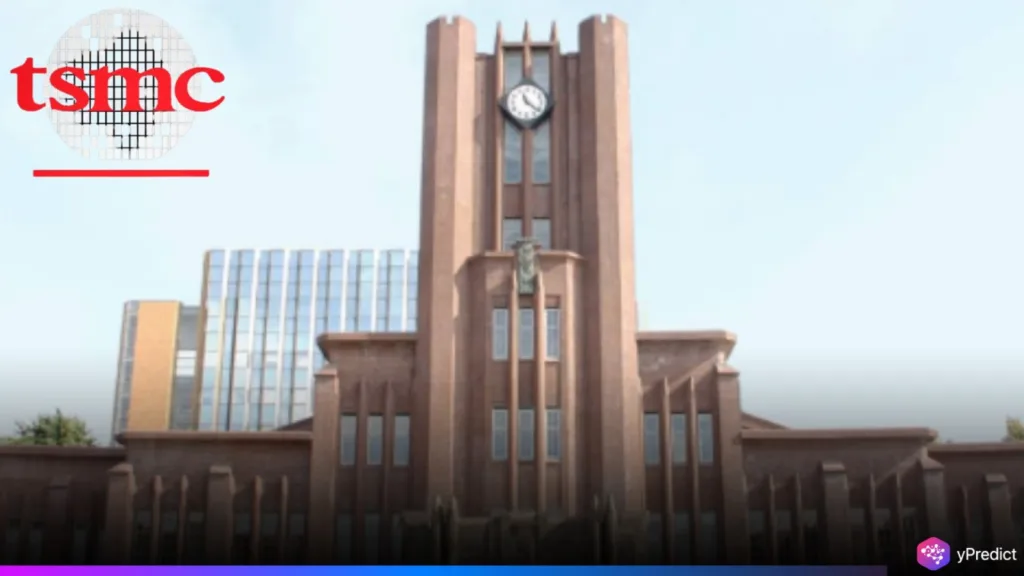
In a move to reinforce global semiconductor innovation and talent cultivation, Taiwan Semiconductor Manufacturing Company (TSMC) and the University of Tokyo (UTokyo) have officially launched a joint research lab in Tokyo. The new facility, named the TSMC-UTokyo Lab, marks TSMC’s first international research collaboration with a university and represents a strategic expansion of the company’s global research and development footprint.
Strengthening Japan’s Semiconductor Ecosystem
The University of Tokyo (UTokyo) and Taiwan Semiconductor Manufacturing Company (TSMC) officially launched the TSMC-UTokyo Lab for advanced research. Located at UTokyo’s Asano campus in Tokyo’s Hongo district, the lab focuses on semiconductor technology, education, and workforce development. It marks TSMC’s first academic research facility outside Taiwan, strengthening ties between academic and industrial innovation leaders.
The project builds on a 2019 partnership that has already produced 21 collaborative research initiatives between the involved institutions. This long-standing relationship became more formal with a Strategic Industrial-Academic Partnership Agreement signed earlier this year. Under the agreement, all parties committed to advancing innovation in semiconductor design and engineering, focusing on sustainability and broader social impact.
Dr. Y.J. Mii, Executive Vice President and Co-Chief Operating Officer at TSMC, said in the press release that,
The TSMC–UTokyo Lab is built on the success of institution-wide collaboration that started in 2019, which has blossomed into the close collaboration that we have today. TSMC and UTokyo are both global leaders in their respective fields, and we hope that this lab will serve as a hub for a broad and long-lasting partnership to expand the boundaries of knowledge in the field of semiconductors and nurture generations of talent for the future.
In 2023, UTokyo became Japan’s first university to adopt TSMC’s N16 FinFET Academic Design Foster Package (ADFP) in coursework. The ADFP platform emphasizes advanced process node design using the N16 FinFET, a 3D transistor replacing traditional planar chip structures. N16 FinFET remains crucial in semiconductor fabrication, supporting technologies from 16nm down to 3nm across the global chip industry.
A Hub for Cutting-Edge Research and Practical Innovation
The TSMC-UTokyo Lab will act as a central hub for applied research in a variety of essential fields, including semiconductor materials, devices, fabrication techniques, metrology, packaging, and circuit design. The results of these studies will directly inform TSMC’s continuing R&D and chip production strategy. Additionally, regular symposiums sponsored by the lab will also allow UTokyo students and professors to exchange ideas with TSMC researchers and industry specialists.
The facility serves not only as a research center but also as an educational hub for next-generation semiconductor training and development. It will support doctoral students, provide internships, and embed industry-relevant training into the university’s core engineering programs.
Moreover, to address the growing need for semiconductor talent, the partnership launched a Social Cooperation Program to strengthen curricula, promote hands-on research, and expand TSMC-backed projects, aligning academic training with Japan’s push to revive its chip industry. UTokyo President Teruo Fujii said in a statement that,
In an era where challenges and rapid changes surround humanity and the future is hard to foresee, universities should not only refine their knowledge in diverse fields but also collaborate with different sectors beyond academia to contribute to solving global challenges and to nurture the talent who will shape the future.
Conclusion
The TSMC-UTokyo Lab marks a key step in Japan’s push to reclaim global semiconductor leadership. Supported by over ¥1 trillion in government subsidies, TSMC is expanding its footprint with two plants in Kumamoto. Parallel efforts by universities like Kumamoto University to boost semiconductor education highlight a national focus on self-reliance and talent development. The lab sets a model for academia-industry collaboration, advancing technology while addressing workforce gaps in this strategically vital sector.







